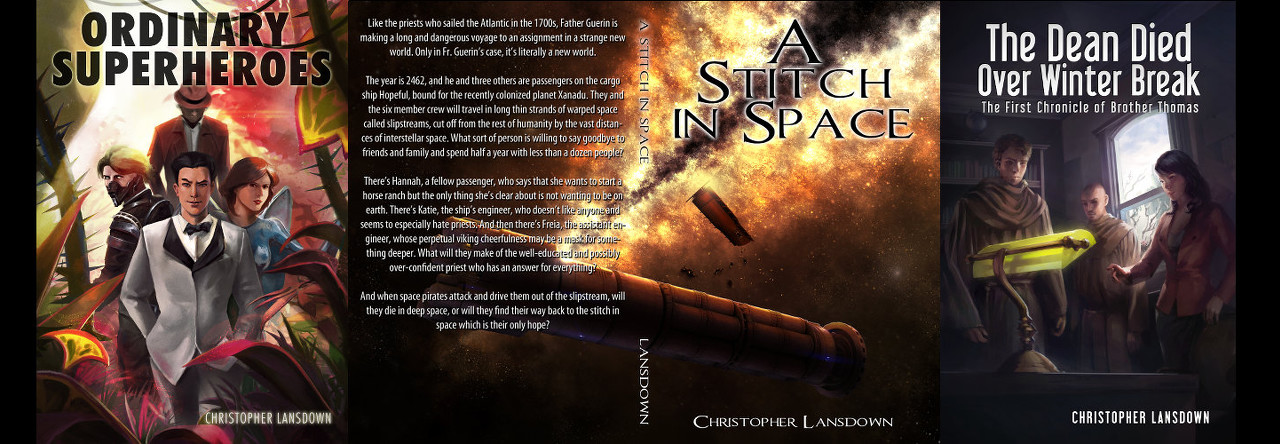I used to assume that people believed in determinism (that human beings do not have free will) merely as a consequence to materialism, and that they weren’t really invested in it. More recently, however, I’ve come to suspect that it is determinism which they are primarily attracted to, and atheism is a way to achieve that determinism. (Not so explicitly, of course.)
One strong reason I suspect this is that we have direct, unequivocal experience of free will. If there wasn’t a strong attraction to determinism, this experience would render anything which contradicted free will simply unbelievable. (And for many people, it does just that.) So there must be some deeply compelling reason to want to disbelieve in free will. What can it be?
Before I answer that question, I want to note that there are several belief systems which denied free will, since there is a hint to the answer of this question in that fact. Hinduism is varied, but at least according to the hindu philosophers the monism of everything being God leaves no room for individual free will. Free will implies the existence of sin, but since everything is God nothing can be sin. (Ordinary hindus probably do believe in free will, I should note.) Buddhism does not believe in free will, which is just one of its many contradictions. (By Buddhism I mean the original Buddhism of Siddhartha Gautama which was a reaction against his failure to achieve happiness as a hindu yogi; I’m not talking about more modern, often syncretic Buddhisms.) And very interestingly, Martin Luther didn’t believe in free will either. In fact he wrote a whole book about how there’s no such thing as free will. (On the Bondage of the Will. It’s a terrible book.)
Now, what do all these things have in common, and what do they have in common with materialism? They are all reductionist systems. They all posit that reality is less than it seems, in some manner or other. But curiously only two of them are atheistic; the other two are theistic. This suggests that what people really object to is not God, but other people. And indeed, that makes sense in reductionist systems. People are messy. There are so many of them, and if they’re free they’re not explicable by a small number of easily understood rules.
To be content with understanding the universe but not being able to comprehend it (that is, to stand in right intellectual relationship to it but not to be able to fit it inside of one’s head) requires humility, and more than anything it requires trust. Trusting God, specifically (which seems to me to have been Martin Luther’s big hangup). So I suspect something like the following rule is the case:
Those who cannot trust God cannot deal with the existence of their fellow men, and will seek some philosophical means of getting rid of their fellow men as important.
In practice, the really thorny part of one’s fellow human beings is their free will. Thus to any such creature who finds trust in God to be impossible, determinism will have a huge appeal.
(As a post-script, I should note that reducing men to their base instincts is merely a less rigorous way of accomplishing the same denial of free will; wherever you find a man who reduces all men’s actions to greed or lust, you have found a man who doesn’t trust God.)

First, let me congratulate you. You are very to courageous to post up on this topic.
I am always curious what people really think about free will and determinism.
When you say free will, what do you mean?
When you say determinism, what do you mean (what are the determinants and how does one distinguish them from the undetermined)?
LikeLike
Free will means the ability to originate causation. Determinism refers to the inability to originate causation.
LikeLike
When you say ‘originate causation’, do you mean, for instance, that when I raise my arm, my action is fully explained by saying that I wanted to raise my arm, and that my wanting is not further explainable
LikeLike
I mean that the origin of the causal chain in your arm going up is within you, and not outside of you. That is, in looking at the causal chain which led up to it, the most recent point that could have happened differently was inside of you.
LikeLike
Compatibilism, then?
LikeLike
In all cases of a freely chosen will, two facts are simultaneously true:
(A) We have made our choice according to our own purpose and our own reasons, therefore it was made of our own free will.
(B) We have made our choice according to our own purpose and our own reasons, therefore it was causally determined.
LikeLike
Hi there Mr. Lansdown. I’ve been a reader of the blog for a little while now, and I like what I see. I didn’t know how else to contact you, but I just was wondering what your thoughts are on this blog post about free will by “Atheism and the City,” a popular atheist blog.
Here is the link: http://www.atheismandthecity.com/2016/04/logical-argument-against-free-will.html?m=1
In similar blog posts’ comment sections he’s also been debating with a Catholic for a few months now about free will, saying that free will can’t be choosing to take action on your thoughts because “If actions are caused by mental choices and mental choices are not something you control, then you don’t control your actions.”
What do you think?
LikeLike